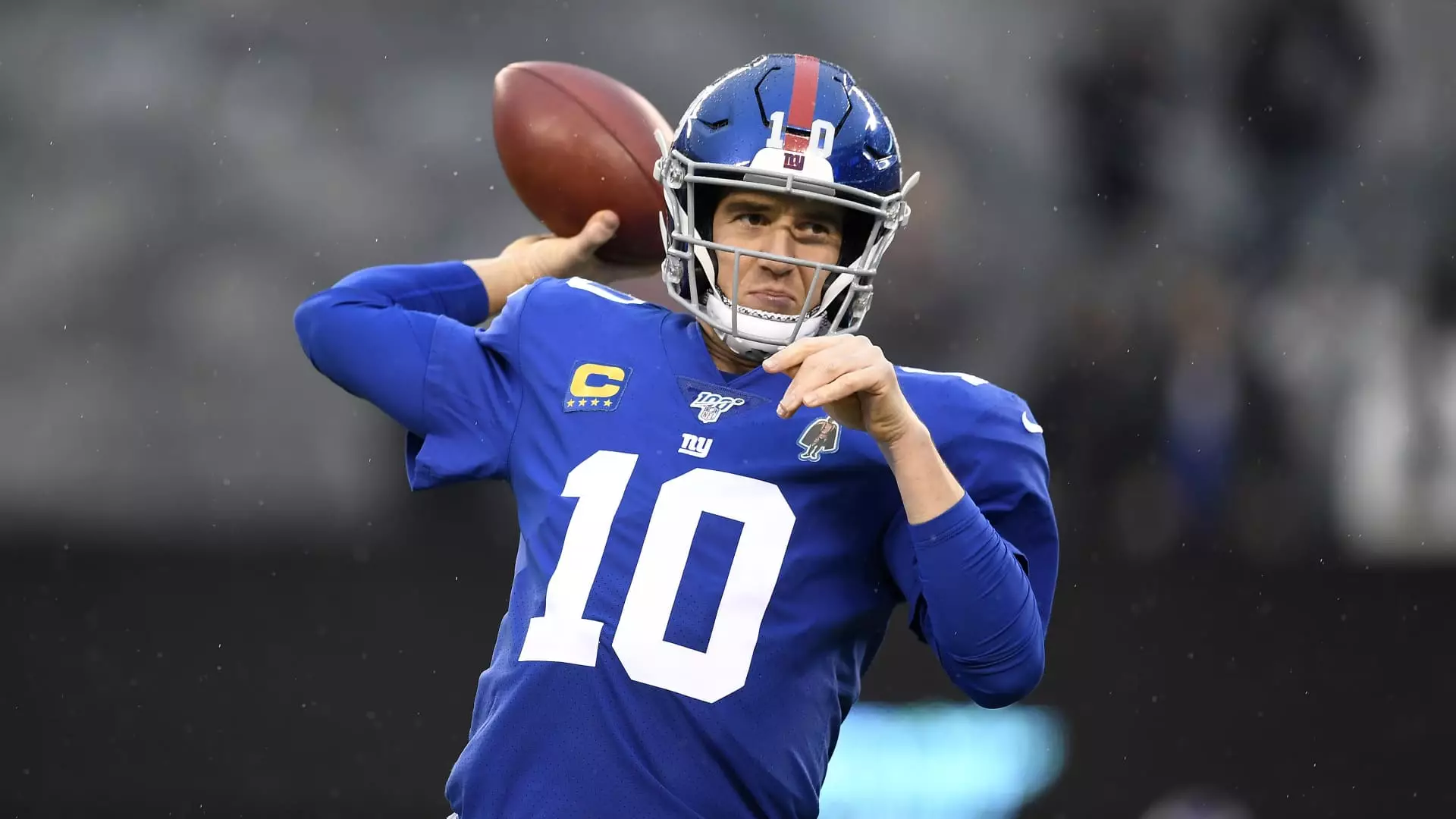In recent years, the soaring valuations of professional sports teams have starkly revealed the widening gap between the financial elite and everyday investors. Eli Manning’s candid admission that he is “priced out” of buying into his beloved New York Giants underscores a troubling trend: the luxurious bubble engulfing sports ownership. This epidemic of exponential growth in franchise values transforms sports teams from beloved community symbols into exclusive commodities—unattainable for most, even those with deep pockets like Manning. The disconnect here isn’t just about money; it’s about access, community, and the very soul of what sports represent.
The valuation figures speak volumes. The Giants, valued at $7.85 billion in recent estimates, have become the ultimate status symbol for ultra-wealthy investors. Meanwhile, high-profile sales and stake transactions, such as the Eagles and 49ers, exemplify a relentless inflation of franchise worth. The Lakers’ recent $10 billion valuation further exemplifies this trend, fortifying the narrative that sports teams are increasingly perceived more as luxury assets than community clubs. This inflated valuation landscape diminishes the notion of sports teams as accessible investment opportunities for modest or middle-class investors. It smothers the idea that sports can be a democratizing force, instead reinforcing exclusivity and privilege.
Ownership as an Elite Playground: The Impact on Competition and Community
When the opportunity to buy into sports teams is confined to the ultra-wealthy, the consequences ripple far beyond simple finances. Ownership becomes a playground for the economic elite, fostering environments where decisions are driven more by personal wealth accumulation than community engagement or competitive fairness. The recent interest from private equity firms and billionaire investors reveals a desire to capitalize on franchises’ burgeoning valuations rather than passion for the sport or local communities. This shift risks turning team ownership into a game of financial dominance, diluting the foundational spirit of sportsmanship and community loyalty.
Former players like Eli Manning openly recognize these financial barriers. Manning’s decision not to pursue a stake in the Giants was not merely about the price—though that was significant—but about the ethical and logistical complexities that come with investing in an arena dominated by wealth. His concern about conflicts of interest, such as his role as a broadcaster and influence on players he once competed with, underscores the tangled web of modern sports entrepreneurship. It’s a landscape increasingly defined by economic hierarchies that exclude many, intentionally or not, from meaningful participation.
The multi-billion dollar valuations are symptomatic of an industry increasingly divorced from its roots. These figures elevate sports teams from communal assets to status symbols for the super-rich, making ownership less about love for the game and more about financial prestige. At the same time, this trend casts a shadow over the sport’s future, raising questions about diversity, representation, and the true accessibility of professional sports. The game may be for the fans, but ownership now seems reserved for a shrinking class of billionaires who view franchises as high-value assets rather than the cultural institutions they once were.
The Politics of Wealth and Ownership: A Call for Balance
In this climate, the idea of shared ownership or democratized access to sports franchises seems increasingly out of reach. However, that doesn’t mean the solution is to accept this inequity as inevitable. Center-leaning policies could advocate for greater transparency and reforms that foster more equitable participation, perhaps through community ownership models, cooperative franchises, or public-private partnerships. The focus should be on ensuring that sports remain a unifying force rather than a symbol of economic disparity.
The NFL’s move to allow private equity stakes of up to 10% is a double-edged sword. It can inject fresh capital into teams, but it also risks further commodifying sports assets. As billionaires continue to see teams as lucrative investments, the risk grows that the core identity of these franchises as community champions is overshadowed by corporate interests. For fans, this means holding onto the idea that sports should serve the public good, not just private wealth accumulation. It’s a call to scrutinize these elite practices and push for policies that keep the sport accessible and rooted in community values.
Manning’s own stance offers a glimpse of hope. His withdrawal from ownership interest, citing both financial and ethical concerns, highlights the importance of balancing personal wealth with social responsibility. It’s a reminder that true sports legacy isn’t measured solely by dollar signs but by the enduring impact on communities and fans who see these teams as part of their identity. As more investors seek to profit from franchises, the challenge lies in steering the industry back toward inclusivity, fairness, and shared enthusiasm for the game.


Leave a Reply